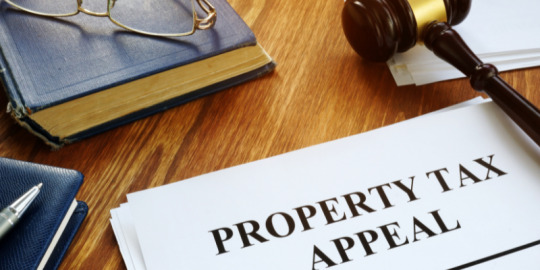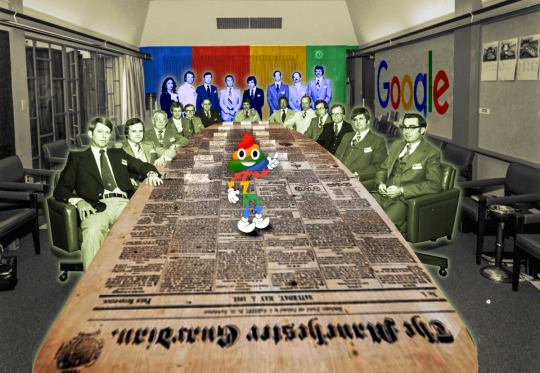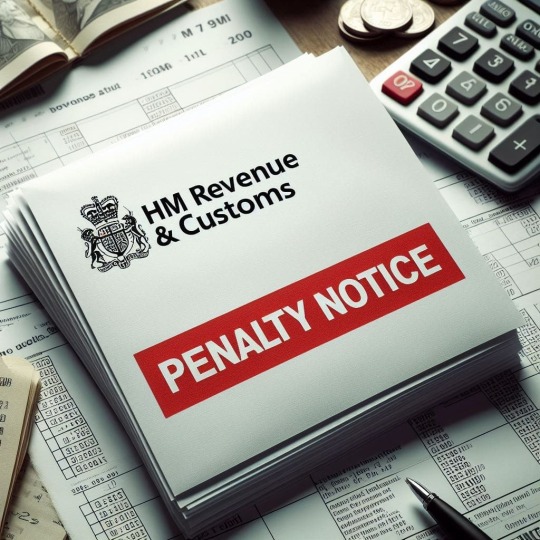#tax appeal
Text
Property Tax Appeal Services in DuPage County
We at O'Connor & Associates, can help you to reduce your DuPage County property taxes every year for residential, commercial, and business personal property to provide you with property tax relief. To know more visit https://www.cutmytaxes.com/illinois/dupage-county-property-tax-reduction/
#property tax appeal#property tax appeal services#tax appeal#reduce property taxes#dupage county#dupage property taxes#cut my taxes
0 notes
Text
Are you looking for a Illinois property tax appeal?
Are you one of the 50 million property owner who is paying too much in Illinois property taxes annually? Become a client of O’Connor and have your property taxes protested every year. Visit https://www.cutmytaxes.com/illinois/
0 notes
Text
Tax Tribunal Demands Compelling Evidence for PPR Tax Relief
In Sabbir Patwary v HMRC [2024] TC09035, the taxpayer gave ‘remarkably little’ evidence to demonstrate that he occupied a property as his only or main residence. Consequently, his claim for £43,000 GBP Capital Gains Tax (CGT) Private Residence Relief (PRR) was denied.
The statutory provision known as the Principal Private Residence (PPR) relief, which is mainly governed by the Taxation of…

View On WordPress
#Advice for Taxpayers#capital gains#First Tier Tax Tribunal#First-tier Tribunal#HMRC#HMRC appeal#HMRC assessment#HMRC Investigations#HMRC Tax Appeal#HMRC Tax Assessment#HMRC Tax Disputes#Tax Appeal#Tax Tribunal#Tribunal#tribunal appeal
0 notes
Link
Fayette County property owners have the right to appeal their property taxes to the Fayette County Appraisal Review Board annually. To Know More, https://fayettecountypropertytaxtrends.com/written-arb-determinations/
0 notes
Text

If you’re not from the United States, you might be shocked to learn that many states have an annual personal property tax also known as vehicle tax, that every vehicle owner must pay. This may seem fair on the surface, but in reality, it’s incredibly unfair, and here’s why.
1 note
·
View note
Text
UK publishers suing Google for $17.4b over rigged ad markets

THIS WEEKEND (June 7–9), I'm in AMHERST, NEW YORK to keynote the 25th Annual Media Ecology Association Convention and accept the Neil Postman Award for Career Achievement in Public Intellectual Activity.

Look, no one wants to kick Big Tech to the curb more than I do, but, also: it's good that Google indexes the news so people can find it, and it's good that Facebook provides forums where people can talk about the news.
It's not news if you can't find it. It's not news if you can't talk about it. We don't call information you can't find or discuss "news" – we call it "secrets."
And yet, the most popular – and widely deployed – anti-Big Tech tactic promulgated by the news industry and supported by many of my fellow trustbusters is premised on making Big Tech pay to index the news and/or provide a forum to discuss news articles. These "news bargaining codes" (or, less charitably, "link taxes") have been mooted or introduced in the EU, France, Spain, Australia, and Canada. There are proposals to introduce these in the US (through the JCPA) and in California (the CJPA).
These US bills are probably dead on arrival, for reasons that can be easily understood by the Canadian experience with them. After Canada introduced Bill C-18 – its own news bargaining code – Meta did exactly what it had done in many other places where this had been tried: blocked all news from Facebook, Instagram, Threads, and other Meta properties.
This has been a disaster for the news industry and a disaster for Canadians' ability to discuss the news. Oh, it makes Meta look like assholes, too, but Meta is the poster child for "too big to care" and is palpably indifferent to the PR costs of this boycott.
Frustrated lawmakers are now trying to figure out what to do next. The most common proposal is to order Meta to carry the news. Canadians should be worried about this, because the next government will almost certainly be helmed by the far-right conspiratorialist culture warrior Pierre Poilievre, who will doubtless use this power to order Facebook to platform "news sites" to give prominence to Canada's rotten bushel of crypto-fascist (and openly fascist) "news" sites.
Americans should worry about this too. A Donald Trump 2028 presidency combined with a must-carry rule for news would see Trump's cabinet appointees deciding what is (and is not) news, and ordering large social media platforms to cram the Daily Caller (or, you know, the Daily Stormer) into our eyeballs.
But there's another, more fundamental reason that must-carry is incompatible with the American system: the First Amendment. The government simply can't issue a blanket legal order to platforms requiring them to carry certain speech. They can strongly encourage it. A court can order limited compelled speech (say, a retraction following a finding of libel). Under emergency conditions, the government might be able to compel the transmission of urgent messages. But there's just no way the First Amendment can be squared with a blanket, ongoing order issued by the government to communications platforms requiring them to reproduce, and make available, everything published by some collection of their favorite news outlets.
This might also be illegal in Canada, but it's harder to be definitive. The Canadian Charter of Rights and Freedoms was enshrined in 1982, and Canada's Supreme Court is still figuring out what it means. Section Two of the Charter enshrines a free expression right, but it's worded in less absolute terms than the First Amendment, and that's deliberate. During the debate over the wording of the Charter, Canadian scholars and policymakers specifically invoked problems with First Amendment absolutism and tried to chart a middle course between strong protections for free expression and problems with the First Amendment's brook-no-exceptions language.
So maybe Canada's Supreme Court would find a must-carry order to Meta to be a violation of the Charter, but it's hard to say for sure. The Charter is both young and ambiguous, so it's harder to be definitive about what it would say about this hypothetical. But when it comes to the US and the First Amendment, that's categorically untrue. The US Constitution is centuries older than the Canadian Charter, and the First Amendment is extremely definitive, and there are reams of precedent interpreting it. The JPCA and CJPA are totally incompatible with the US Constitution. Passing them isn't as silly as passing a law declaring that Pi equals three or that water isn't wet, but it's in the neighborhood.
But all that isn't to say that the news industry shouldn't be attacking Big Tech. Far from it. Big Tech compulsively steals from the news!
But what Big Tech steals from the news isn't content.
It's money.
Big Tech steals money from the news. Take social media: when a news outlet invests in building a subscriber base on a social media platform, they're giving that platform a stick to beat them with. The more subscribers you have on social media, the more you'll be willing to pay to reach those subscribers, and the more incentive there is for the platform to suppress the reach of your articles unless you pay to "boost" your content.
This is plainly fraudulent. When I sign up to follow a news outlet on a social media site, I'm telling the platform to show me the things the news outlet publishes. When the platform uses that subscription as the basis for a blackmail plot, holding my desire to read the news to ransom, they are breaking their implied promise to me to show me the things I asked to see:
https://www.eff.org/deeplinks/2023/06/save-news-we-need-end-end-web
This is stealing money from the news. It's the definition of an "unfair method of competition." Article 5 of the Federal Trade Commission Act gives the FTC the power to step in and ban this practice, and they should:
https://pluralistic.net/2023/01/10/the-courage-to-govern/#whos-in-charge
Big Tech also steals money from the news via the App Tax: the 30% rake that the mobile OS duopoly (Apple/Google) requires for every in-app purchase (Apple/Google also have policies that punish app vendors who take you to the web to make payments without paying the App Tax). 30% out of every subscriber dollar sent via an app is highway robbery! By contrast, the hyperconcentrated, price-gouging payment processing cartel charges 2-5% – about a tenth of the Big Tech tax. This is Big Tech stealing money from the news:
https://www.eff.org/deeplinks/2023/06/save-news-we-must-open-app-stores
Finally, Big Tech steals money by monopolizing the ad market. The Google-Meta ad duopoly takes 51% out of every ad-dollar spent. The historic share going to advertising "intermediaries" is 10-15%. In other words, Google/Meta cornered the market on ads and then tripled the bite they were taking out of publishers' advertising revenue. They even have an illegal, collusive arrangement to rig this market, codenamed "Jedi Blue":
https://en.wikipedia.org/wiki/Jedi_Blue
There's two ways to unrig the ad market, and we should do both of them.
First, we should trustbust both Google and Meta and force them to sell off parts of their advertising businesses. Currently, both Google and Meta operate a "full stack" of ad services. They have an arm that represents advertisers buying space for ads. Another arm represents publishers selling space to advertisers. A third arm operates the marketplace where these sales take place. All three arms collect fees. On top of that: Google/Meta are both publishers and advertisers, competing with their own customers!
This is as if you were in court for a divorce and you discovered that the same lawyer representing your soon-to-be ex was also representing you…while serving as the judge…and trying to match with you both on Tinder. It shouldn't surprise you if at the end of that divorce, the court ruled that the family home should go to the lawyer.
So yeah, we should break up ad-tech:
https://www.eff.org/deeplinks/2023/05/save-news-we-must-shatter-ad-tech
Also: we should ban surveillance advertising. Surveillance advertising gives ad-tech companies a permanent advantage over publishers. Ad-tech will always know more about readers' behavior than publishers do, because Big Tech engages in continuous, highly invasive surveillance of every internet user in the world. Surveillance ads perform a little better than "content-based ads" (ads sold based on the content of a web-page, not the behavior of the person looking at the page), but publishers will always know more about their content than ad-tech does. That means that even if content-based ads command a slightly lower price than surveillance ads, a much larger share of that payment will go to publishers:
https://www.eff.org/deeplinks/2023/05/save-news-we-must-ban-surveillance-advertising
Banning surveillance advertising isn't just good business, it's good politics. The potential coalition for banning surveillance ads is everyone who is harmed by commercial surveillance. That's a coalition that's orders of magnitude larger than the pool of people who merely care about fairness in the ad/news industries. It's everyone who's worried about their grandparents being brainwashed on Facebook, or their teens becoming anorexic because of Instagram. It includes people angry about deepfake porn, and people angry about Black Lives Matter protesters' identities being handed to the cops by Google (see also: Jan 6 insurrectionists).
It also includes everyone who discovers that they're paying higher prices because a vendor is using surveillance data to determine how much they'll pay – like when McDonald's raises the price of your "meal deal" on your payday, based on the assumption that you will spend more when your bank account is at its highest monthly level:
https://pluralistic.net/2024/06/05/your-price-named/#privacy-first-again
Attacking Big Tech for stealing money is much smarter than pretending that the problem is Big Tech stealing content. We want Big Tech to make the news easy to find and discuss. We just want them to stop pocketing 30 cents out of every subscriber dollar and 51 cents out of ever ad dollar, and ransoming subscribers' social media subscriptions to extort publishers.
And there's amazing news on this front: a consortium of UK web-publishers called Ad Tech Collective Action has just triumphed in a high-stakes proceeding, and can now go ahead with a suit against Google, seeking damages of GBP13.6b ($17.4b) for the rigged ad-tech market:
https://www.reuters.com/technology/17-bln-uk-adtech-lawsuit-against-google-can-go-ahead-tribunal-rules-2024-06-05/
The ruling, from the Competition Appeal Tribunal, paves the way for a frontal assault on the thing Big Tech actually steals from publishers: money, not content.
This is exactly what publishing should be doing. Targeting the method by which tech steals from the news is a benefit to all kinds of news organizations, including the independent, journalist-owned publishers that are doing the best news work today. These independents do not have the same interests as corporate news, which is dominated by hedge funds and private equity raiders, who have spent decades buying up and hollowing out news outlets, and blaming the resulting decline in readership and profits on Craiglist.
You can read more about Big Finance's raid on the news in Margot Susca's Hedged: How Private Investment Funds Helped Destroy American Newspapers and Undermine Democracy:
https://www.press.uillinois.edu/books/?id=p087561
You can also watch/listen to Adam Conover's excellent interview with Susca:
https://www.youtube.com/watch?v=N21YfWy0-bA
Frankly, the looters and billionaires who bought and gutted our great papers are no more interested in the health of the news industry or democracy than Big Tech is. We should care about the news and the workers who produce the news, not the profits of the hedge-funds that own the news. An assault on Big Tech's monetary theft levels the playing field, making it easier for news workers and indies to compete directly with financialized news outlets and billionaire playthings, by letting indies keep more of every ad-dollar and more of every subscriber-dollar – and to reach their subscribers without paying ransom to social media.
Ending monetary theft – rather than licensing news search and discussion – is something that workers are far more interested in than their bosses. Any time you see workers and their bosses on the same side as a fight against Big Tech, you should look more closely. Bosses are not on their workers' side. If bosses get more money out of Big Tech, they will not share those gains with workers unless someone forces them to.
That's where antitrust comes in. Antitrust is designed to strike at power, and enforcers have broad authority to blunt the power of corporate juggernauts. Remember Article 5 of the FTC Act, the one that lets the FTC block "unfair methods of competition?" FTC Chair Lina Khan has proposed using it to regulate training AI, specifically to craft rules that address the labor and privacy issues with AI:
https://www.youtube.com/watch?v=3mh8Z5pcJpg
This is an approach that can put creative workers where they belong, in a coalition with other workers, rather than with their bosses. The copyright approach to curbing AI training is beloved of the same media companies that are eagerly screwing their workers. If we manage to make copyright – a transferrable right that a worker can be forced to turn over their employer – into the system that regulates AI training, it won't stop training. It'll just trigger every entertainment company changing their boilerplate contract so that creative workers have to sign over their AI rights or be shown the door:
https://pluralistic.net/2024/05/13/spooky-action-at-a-close-up/#invisible-hand
Then those same entertainment and news companies will train AI models and try to fire most of their workers and slash the pay of the remainder using those models' output. Using copyright to regulate AI training makes changes to who gets to benefit from workers' misery, shifting some of our stolen wages from AI companies to entertainment companies. But it won't stop them from ruining our lives.
By contrast, focusing on actual labor rights – say, through an FTCA 5 rulemaking – has the potential to protect those rights from all parties, and puts us on the same side as call-center workers, train drivers, radiologists and anyone else whose wages are being targeted by AI companies and their customers.
Policy fights are a recurring monkey's paw nightmare in which we try to do something to fight corruption and bullying, only to be outmaneuvered by corrupt bullies. Making good policy is no guarantee of a good outcome, but it sure helps – and good policy starts with targeting the thing you want to fix. If we're worried that news is being financially starved by Big Tech, then we should go after the money, not the links.

If you'd like an essay-formatted version of this post to read or share, here's a link to it on pluralistic.net, my surveillance-free, ad-free, tracker-free blog:
https://pluralistic.net/2024/06/06/stealing-money-not-content/#content-free
#pluralistic#competition#advertising#surveillance advertising#saving the news from big tech#link taxes#trustbusting#competition and markets authority#uk#ukpoli#Ad Tech Collective Action#digital markets unit#Competition Appeal Tribunal
486 notes
·
View notes
Photo

The last date to appeal for your hotel property taxes is approaching. Visit www.hotelpropertytaxconsultant.com to learn more!
0 notes
Text
The reason that dwj failed to make howl a hateable character is that he is not actually. THAT awful. like he IS a vain and pathetic slut who hates authority but that’s. Not really a downside. Worst thing about howl is that he doesn’t do chores and can’t budget which is manageable ESPECIALLY for Sophie who is SO good at telling people what to do that it is literally her superpower.
Also Howl respects women. Like yes he dates around but he’s not Irritating about it. He always takes Sophie seriously and when he is irritating it’s never in a gendered direction like yeah he thinks he’s smarter than everyone else. But that covers Everyone and not just All Women.
#Howl#hmc book#you know how dwj said in that interview ‘yeah I don’t know why he is a sex symbol. He is not appealing.’#But he is kind of. He’s just a Dude who is a tax evader and also is in academia#he’s also a little pathetic! a wet cat of a guy#There are SO many worse sorts of Dude out there
269 notes
·
View notes
Text
my special talent is turning thoughtless cute escapist fantasy stuff into absolutely fucked horror fuel. its active even when i am very ill and reading weird otome isekai to relax
#narrates#i am absolutely NOT as sharp as I want to be because im sick. hence the fluffy isekai manga#i always have fun analyzing it but from a very different and less mentally taxing perspective than I do most things#since i tend to analyze it from the angle of 'what kind of escapist fantasy is being appealed to in this story?'#but even when my analytical skills are dull i am Literally Always going. oh this could be horror fuel with a more self aware protagonist
22 notes
·
View notes
Text
For the Coordinator!Emmet AU, when it comes to Ingo becoming the PLA protagonist's actual, legal Uncle, as cute as Emmet and Johanna meeting, getting to know one another, becoming friends, and then falling in love could be, it would be WAAAAY more funny if Emmet suggested it sheerly because he heard the kid refer to Ingo as their 'Uncle.'
Emmet hears "Uncle Ingo" and just thinks to himself, 'Uncle Ingo...? Hey, we can actually make that happen!'
The next day he runs up to Johanna just like, "Hey! So, hear me out. Let's get married! Why? Well, we are both single. No one would nag us to be looking for a partner or try to get with either of us when we're not interested. But also, 1: Tax benefits. 2: It would make it easier for all of us to get dual citizenship. 3: More excuses for all of us to get together. 4: The kid calling Ingo their 'Uncle' would become a factual statement. 5: We're all already practically family anyway. 6: Ingo and I will make sure that you and the kid will always be able to access the Unovan Subway system for free."
This is just an idea that absolutely tickles me.
#People getting platonically married for tax benefits and the like is just something that appeals to my ace sensibilities. u.u#I always want more committed long-term platonic relationships and marriages in my media and other garbage dammit! QPRs for the win!#coordinator emmet#coordinator!emmet#coordinator emmet au#subway master emmet#coordinator johanna#pla protagonist#akari is dawn#rei is lucas#uncle ingo#subway master ingo#submas#submas au#pokemon#trainer lucas#trainer dawn#trainer rei#trainer akari#subway boss emmet#submas emmet#emmet pokemon#emmet pkmn#emmet and ingo#warden ingo#pokemon legends ingo#ingo pkmn#subway boss ingo#submas ingo#ingo pokemon
170 notes
·
View notes
Text
How to reduce property taxes in Kendall County?
How to reduce commercial property taxes in Kendall County? Protest each & every year!It is your right & most appeals are successful. Reach us at https://www.cutmytaxes.com/illinois/kendall-county-assessment-appeal/
#kendall county#reduce property taxes#reduce commercial property taxes#property taxes#tax appeal#cut my taxes
0 notes
Text
How to Win Your Property Tax Appeal?
You have the right to appeal every year! If you are planning for a property tax appeal and searching for a property tax consultant, reach us at https://www.cutmytaxes.com/

0 notes
Text
Taxpayer Appeal Allowed – HMRC's Approach to Penalties Criticised
In a recent dispute between H&H Contract Scaffolding Limited (H&H) and HM Revenue & Customs (HMRC) [2024] UKFTT 00151 (TC), concerning a research and development (R&D) tax relief claim, significant insights were revealed into HMRC‘s approach to penalties. The case sheds light on the complexities surrounding penalties for alleged “careless behaviour” and raises questions about HMRC’s default…

View On WordPress
#Advice for Taxpayers#First Tier Tax Tribunal#HMRC#HMRC appeal#HMRC Investigations#hmrc penalty#HMRC Tax Appeal#HMRC Tax Disputes#Penalties#Penalty#penalty notice#Tax Appeal
0 notes
Link
You can't get a tax reduction unless you file an appeal. Believe it or not, most people do not appeal their property tax assessment. Do it today and reduce your property taxes @ https://glasscockcountypropertytaxtrends.com/appeals/
0 notes
Text
Just saw someone joke about people who wear pimple patches in public, and now I get to feel self conscious 😬 literally there is no good option. Acne hurts and I'll rather have something preventing me from getting more shit in my face when I inevitably touch it
Also I just realized I fucked up my tax appeal which.......is a LOT of money I just wasted. I get to have a panic attack at 6am (hence why I also feel enough to care about the acne)
#my taxes required that i appeal it#and they said it may take 8 weeks to send a confirmation of the appeal#but now they never sent to confirmation but also they said you have to send the appeal in 30 days of your return#so im assuming i sent the appeal wrong or it wasn't received#but i dont think i can resend it because it's after the time limit#so 😬😬😬😬😬😬😬😬😬 2-3k down the drain#its the injured spouse relief if anyone has experience with that#if you have experience with that sorry and rip
8 notes
·
View notes
Text
Wrist is feeling better, gonna stream next Tuesday. I got a bunch of itch.io games, so we'll be going through at least one of those! (Later time due to school. Likely around 4.)
#golden_purp#indie vtuber#vtuber uprising#vtuber#indie games#stream announcement#A Game About Literally Doing Your Taxes#looks the most appealing to me personally#I don't trust that title.
4 notes
·
View notes